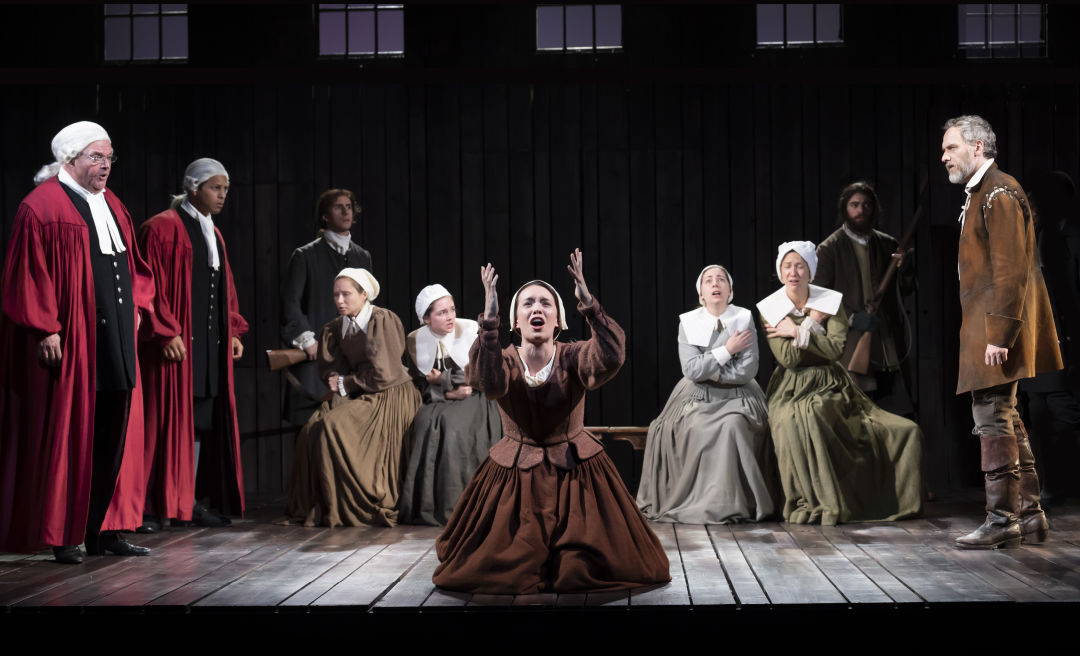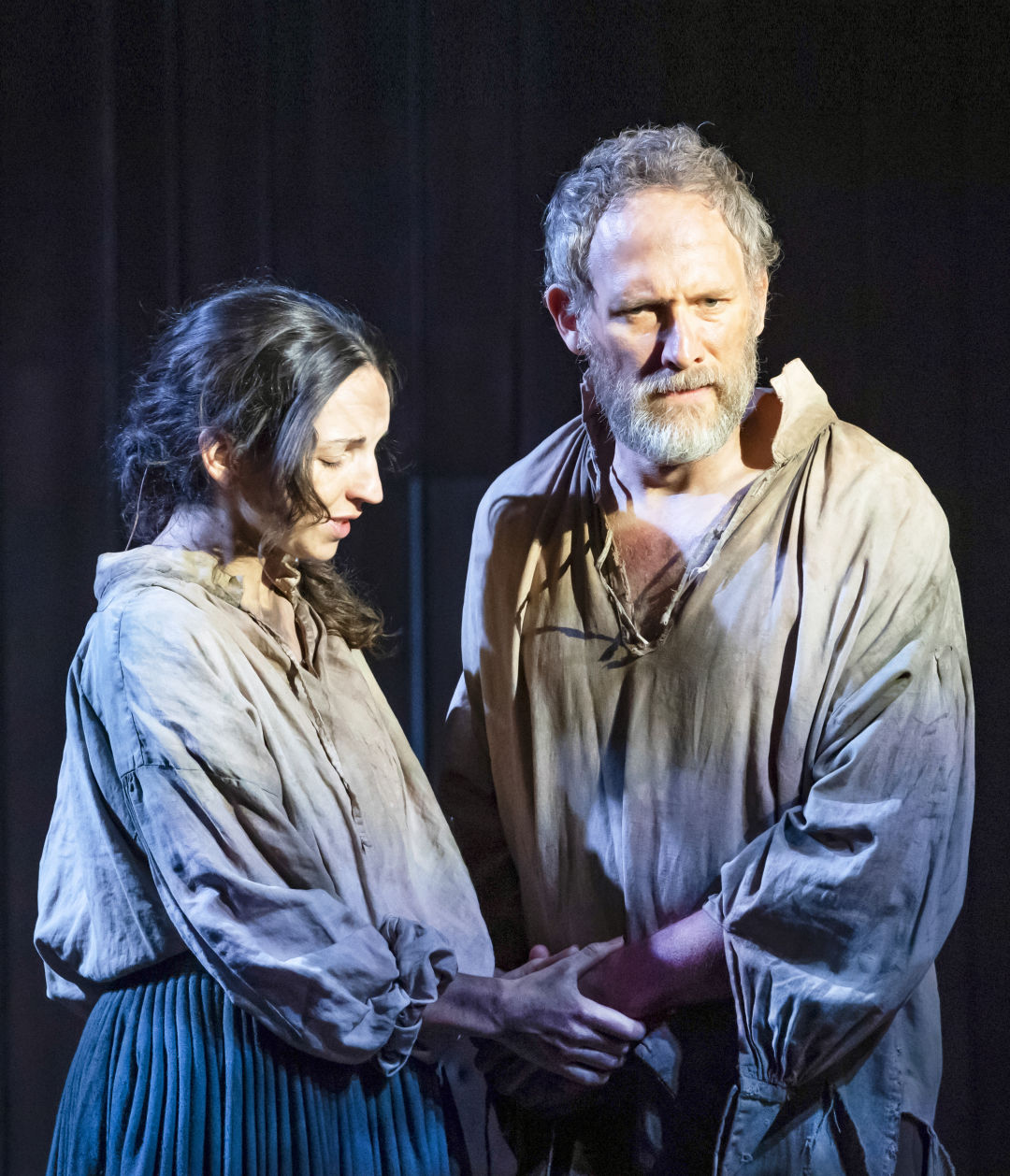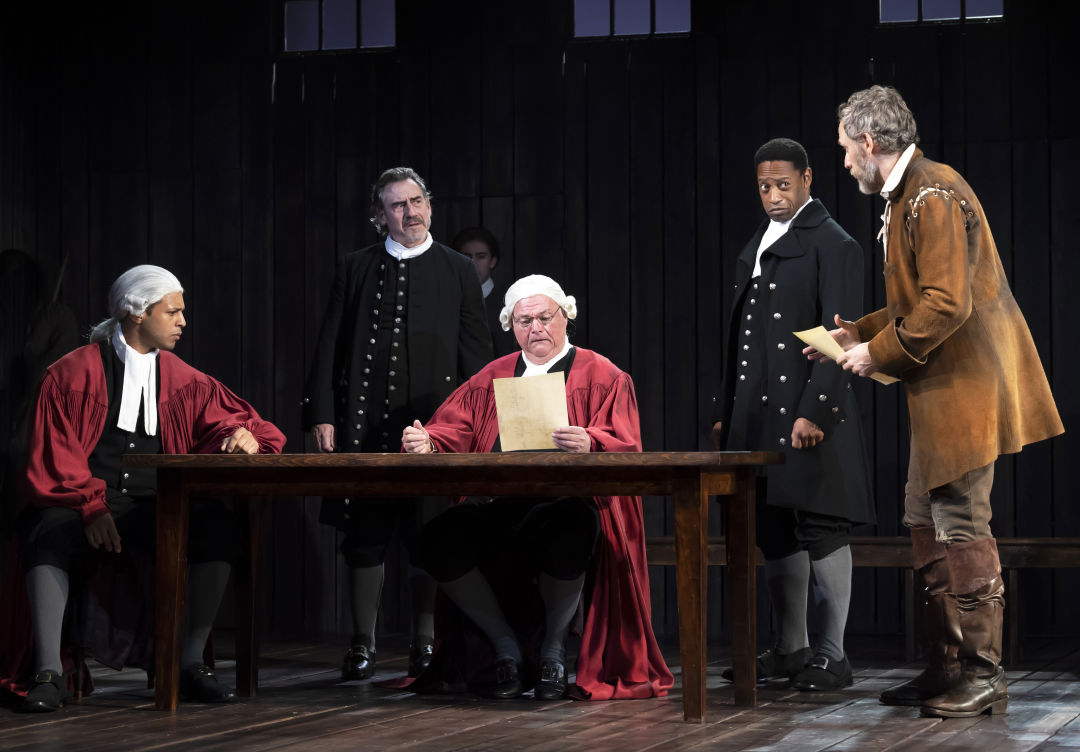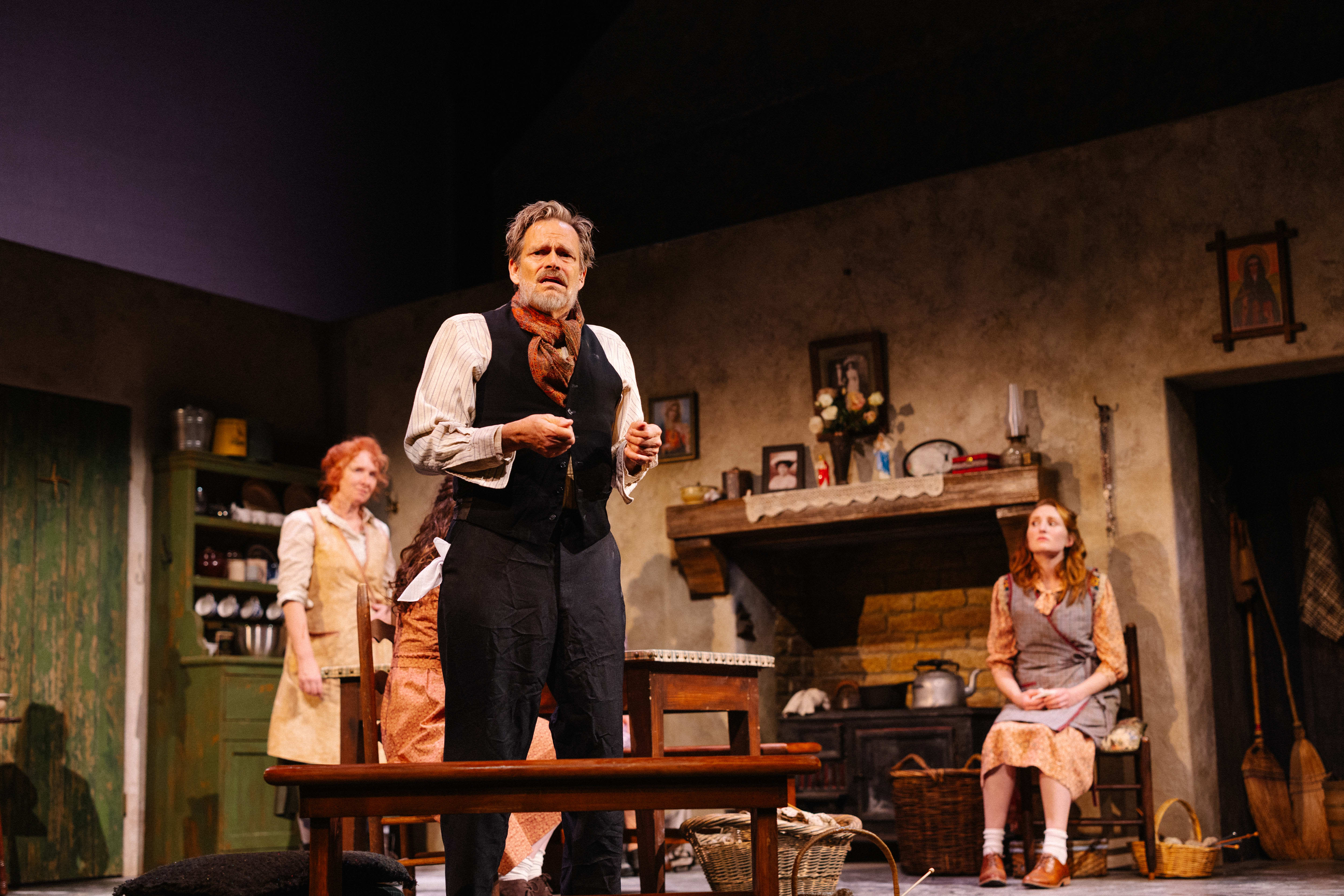Asolo Rep's The Crucible Delivers High Heat

Amanda Fallon Smith, center, is Abigail Williams in Asolo Rep's The Crucible.
Image: Cliff Roles
At a time when the phrase “witch hunt” seems to reverberate weekly on Twitter and the news, it should intrigue audiences to once more revisit the days of the actual Salem witch trials, as captured in Arthur Miller’s The Crucible, now onstage at Asolo Rep.
And, in this compelling production under the direction of Asolo Rep producing artistic director Michael Donald Edwards, audiences should find it deeply emotional as well. I don’t think I’ve ever seen a version of The Crucible, whether onstage or on film, that wasn’t effective, no matter what political times we were living in, which just proves once more Miller’s genius.
He wrote it, of course, during the McCarthy era of the 1950s, when the House Un-American Activities Committee (HUAC) was questioning writers, actors, directors and others (including Miller’s friend, Elia Kazan) and pressuring them to name names of acquaintances as communists. But human nature being what it is, the lessons of The Crucible seem to apply over and over in history.
Taking his cue from those Salem, Massachusetts trials of 1692 (but using artistic freedom to change certain facts and characters), Miller has his play open with the discovery that teenage girls have been found dancing in the woods—a forbidden activity, certainly, in the Puritan colony. The girls, including chief accuser Abigail Williams (Amanda Fallon Smith) are strangely affected in the aftermath and begin claiming that other Salem citizens—some the dregs of society, some highly respected—are consorting with the devil.

Laura Rook and Coburn Goss as Elizabeth and John Proctor.
Image: Cliff Roles
Breaking from factuality, Miller’s Abigail has a motive beyond self-protection for pointing the finger at others; she wants to reclaim the love of John Proctor (Coburn Goss), whose wife Elizabeth (Laura Rook) threw the servant Abigail out of her house after learning of her husband’s relationship with her. That’s Abigail’s reason.
But what of the others in the community, from the young hysterics who follow Abby’s lead to the clergymen, judges and pillars of society who jump onboard the rapidly moving train of accusations? Sexual repression, religious hypocrisy, avarice for land and possessions and more all play their roles in turning neighbor against neighbor.

Andrew Hardaway, David Breitbarth, Matt DeCaro, Gabriel Lawrence and Coburn Goss.
Image: Cliff Roles
Lee Savage’s set design, plain and simple as the Puritans would have lived, places us in the right restrictive atmosphere, with Tracy Dorman’s costuming and Jen Schriever’s lighting likewise confining us to the church, courtroom and home environs of a 17th-century New England town. And Edwards has elicited strong performances from a large cast, especially Asolo newcomer Goss as John Proctor, tormented by his guilt but trying to save his marriage, his life and his honor; third-year FSU/Asolo Conservatory student Sara Linares as Mary Warren, torn between the truth and the machinations of Abigail and her cohort; Gabriel Lawrence as The Rev. John Hale, who begins to regret his part in the proceedings; and Matt DeCaro, the man you love to hate as Deputy Governor Danforth. (His presence here is another of Miller’s departures from strict truth.)
Fallon Smith and Rook, along with Bruce A. Young as the contentious Giles Corey and Peggy Roeder as the beloved Rebecca Nurse, also have moments to praise in their work here. And overall, the production serves to remind us powerfully how we are tested again and again in the heat of overwhelming human drives. Who will be found wanting?
The Crucible continues through March 10 in rotating rep at the Mertz Theatre; for tickets call 351-8000 or visit asolorep.org.



